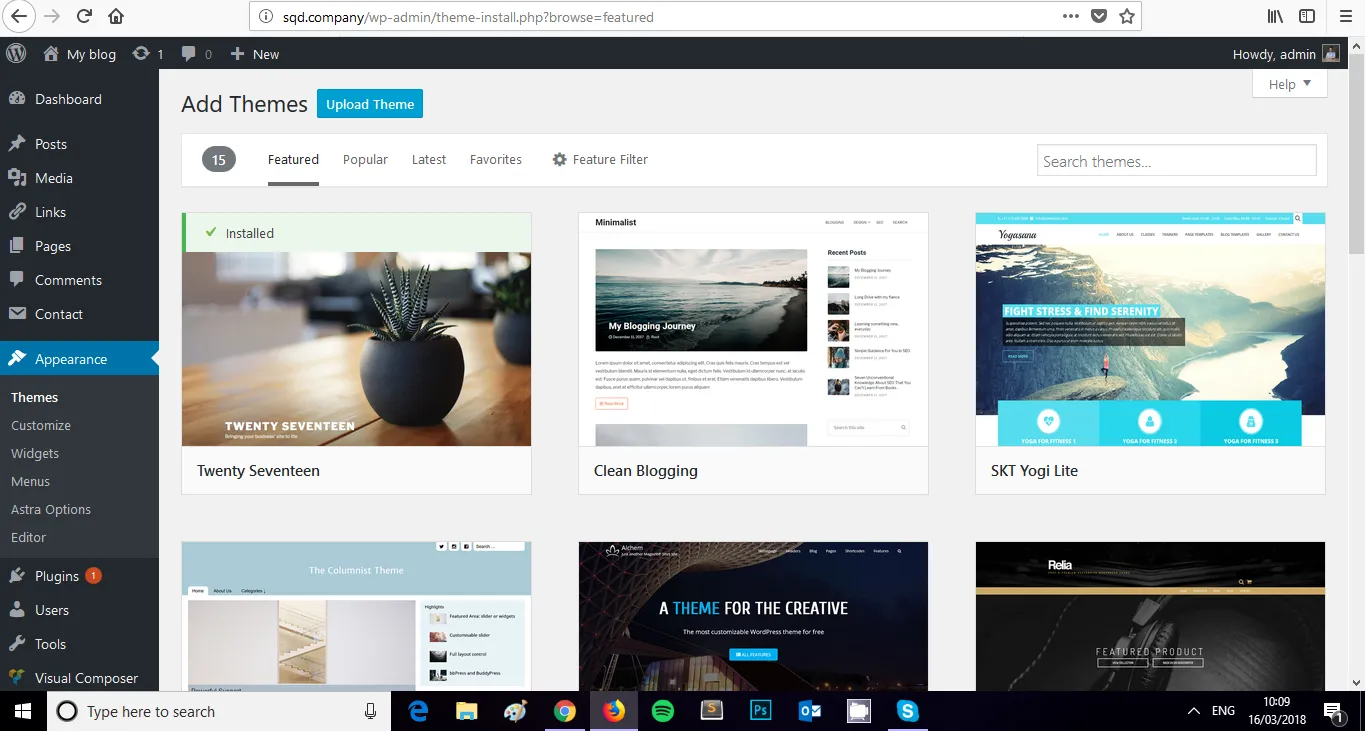MY BLOGS

Why WordPress Is The BEST Platform To Build Your Business or Startup Website On

What is WordPress?
For those of you unfamiliar with WordPress, WordPress is a CMS, or content management system. A content management system allows you to edit and alter the appearance of your website, without having to use code.
Think of something like Microsoft Word for websites, with an absolute ton of extra features and the ability to drag and drop blocks of functionality for your website, and you might be along the right lines.
Maybe WPBeginner’s description does WordPress more justice. They define a CMS, and WordPress specifically as:
“A content management system or CMS is a software that facilitates creating, editing, organizing, and publishing content. WordPress is a Content Management System, that allows you to create and publish your content on the web. Although it is mostly used for web publishing, it can be used to manage content on an intranet, or in a single computer.”
Why use WordPress?
So begins the never ending list of cool reasons you should use WordPress for your business website, strap in, and try not to get too excited.
It’s free
WordPress is a free to use CMS system that can be installed on any website. WPBeginner sum it up well:
“WordPress is an open source software. It is free in the sense of freedom not in the sense of free beer. You may ask what is the difference between these two? Open Source software comes with freedom for you to use, modify, build upon, and redistribute the software in any way you like.”
It has themes and page builders
WordPress runs on themes and page builders.
What’s a theme or page builder? I hear you ask, in barely contained excitement.
Well, there are lots of quite technical definitions of what a WordPress theme is. I found this gem from WordPress.org for example:
“A WordPress Theme is a collection of files that work together to produce a graphical interface with an underlying unifying design for a weblog. These files are called template files. A Theme modifies the way the site is displayed, without modifying the underlying software.”
I had a go at defining it and I came up with this:
“A WordPress theme is a collection of code, functionality and styles that you can install onto your website in the form of a theme. Installing this Theme on your WordPress website allows you to access and use the functionality and styles of the Theme using the WordPress CMS interface, page builders and any plugins provided by your theme, without having to touch any of the code.”
Whichever way you look at it, WordPress is the foundation your website is built on. The WordPress theme or framework you choose is the toolkit you decide to build your website with.
If you’re interested in having a look at what these toolkits can do, check out Divi featured below, which is one of the most popular